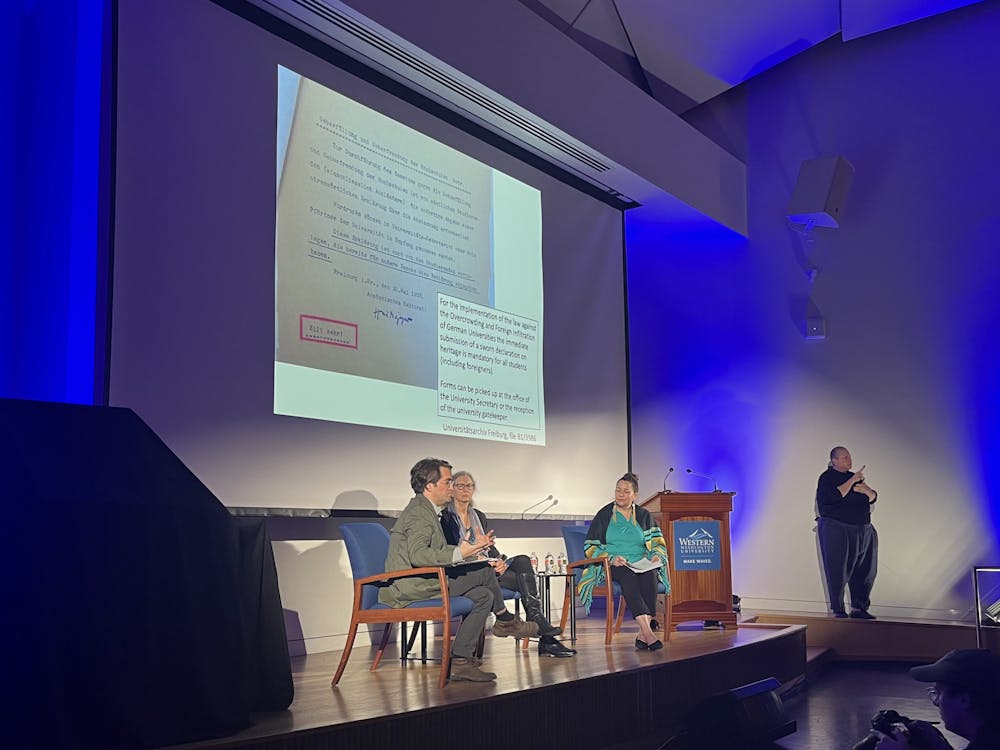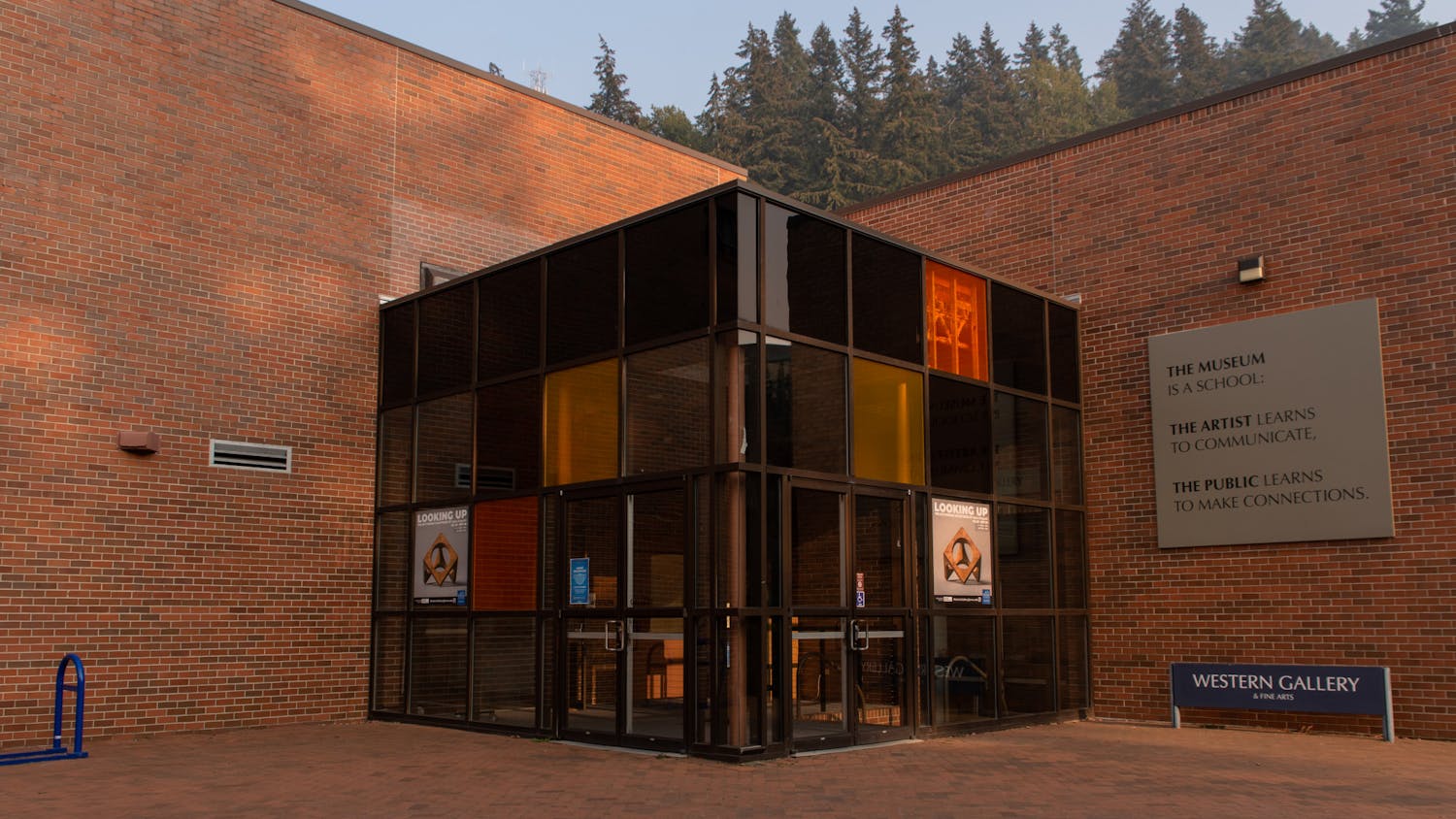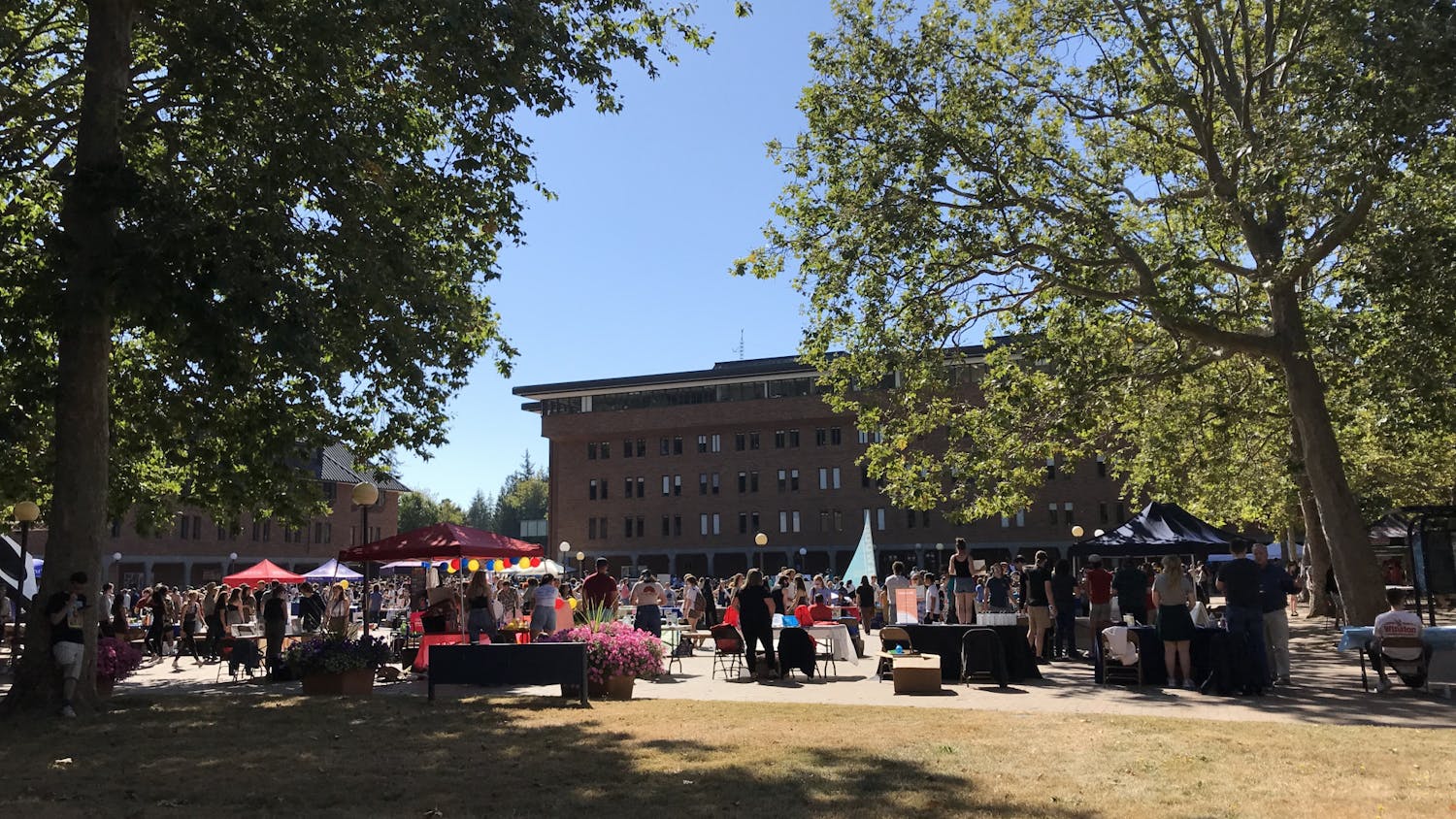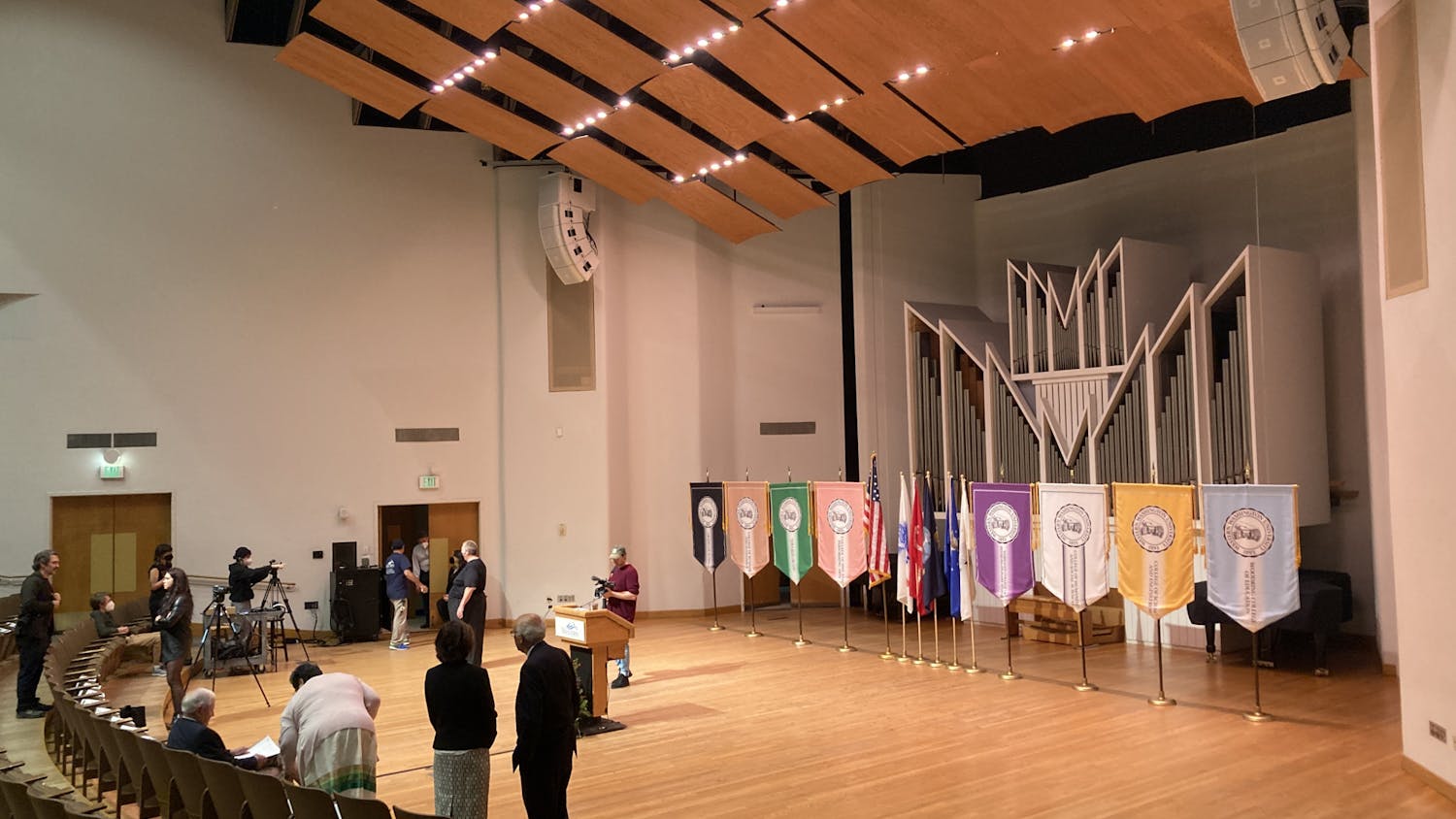At this year’s Joseph and Rebecca Meyerhoff Annual Lecture held at Western Washington University, two speakers delved into the roles of educational systems in spreading antisemitism in Nazi Germany and assimilating Indigenous peoples in the U.S.
Adam Knowles of the University of Zurich and Margaret D. Jacobs of the University of Nebraska-Lincoln made up the panel. Hollie Mackey of North Dakota State University served as moderator.
Their discussion comes after The Front documented a rise in antisemitism at Western in recent years.
In a conversation with The Front following the lecture, Knowles responded to questions about growing antisemitism among younger generations.
“I think that the narrowing of exposure to different kinds of media, the way that the algorithms on social media put you into an ever smaller and smaller set of news that reconfirms your worldview, has led to a resurgence of conspiratorial thinking,” he said.
Knowles spoke during the lecture about some of the measures taken by German universities in the 1930s and ‘40s to spread antisemitic beliefs before social media’s existence.
“When Hitler comes to power in January 1933, they wanted to transform the universities into the site of training for future generations of the Nazi regime,” Knowles said.
These universities were targeted for a process called “Nazification” or “Aryanization.”
The United States Holocaust Memorial Museum, co-host of the lecture, describes Aryanization as “the transfer of Jewish-owned property to non-Jews in Nazi Germany from 1933-1945.”
On April 7, 1933, the Law for the Restoration of the Professional Civil Service was introduced, and Jewish faculty were purged from universities. Students had to provide sworn documentation, going back multiple generations, that they were not Jewish.
“The university, for a long time, especially beginning in the 19th century, was an essential resource for nation-building projects and remains an essential resource for nation-building projects across the political spectrum,” Knowles said.
Jacobs brought up parallels to the U.S. in the 1800s with groups that claimed to be allies of Indigenous peoples like “Friends of the Indian.”
“They started proposing that Native people could not remain Native people, that the nation couldn’t progress without assimilating Native people,” Jacobs said. “Native people could no longer have sovereign nations, they could no longer speak their languages, practice their religions, occupy their lands.”
This is when the U.S. created a system that included hundreds of federally-run American Indian boarding schools in the late 19th century. They claimed to be saving Indigenous children through forced assimilation at these schools.
“The American ideology was very different from the Nazis because it wasn’t about purging Native Americans from education, it was about using education as a kind of weapon against them,” Jacobs said.
While American Indian boarding schools no longer exist under the federal government, schools in the U.S. continue to try to control narratives through what is, or rather, what is not taught.
“Now what we see in the U.S. context is far more thinking about limiting curriculum and not allowing certain things to be taught,” Mackey said. “I didn’t learn about boarding schools in school. And I certainly didn’t learn about the Holocaust in a way that was meaningful in school.”
Anti-critical race theory bills and the banning of specific books have been some of the more recent efforts to limit exposure to certain dialogue in America. As noted, Knowles cited the importance of the university when it comes to pushing a national agenda.
“The rapidity with which the university was just brutally changed was really shocking,” Knowles said. “So, I think that’s one thing that we can learn — just to be prepared for how swift what we take to be stable institutions may not be as stable as we think.”
Andrew Foster (he/him) is the editor-in-chief for The Front this quarter. He is majoring in journalism and enjoys playing, watching and writing about basketball.
You can reach him at andrewfoster.thefront@gmail.com.






